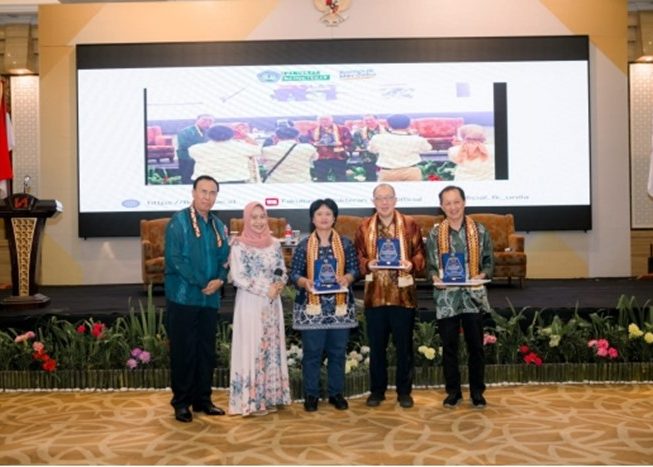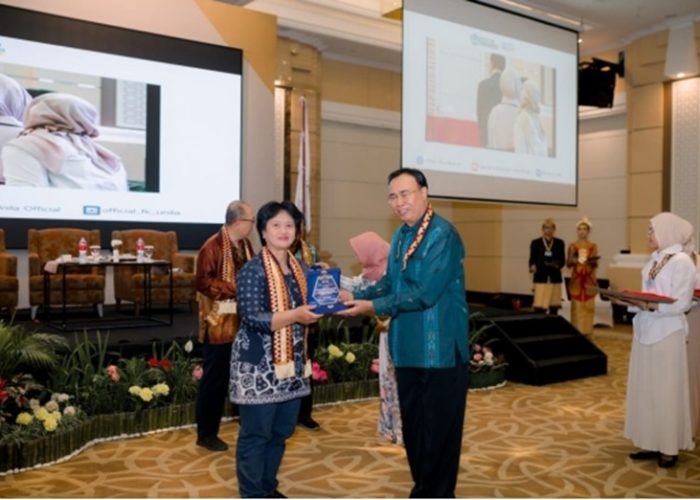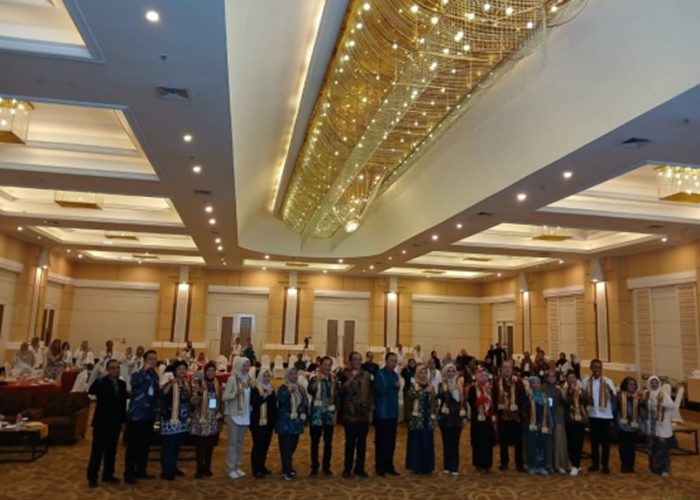Prof. Dr. Kumala Dewi, M.Sc.St., a professor from the Faculty of Biology at Universitas Gadjah Mada, served as a keynote speaker at the 31st International Symposium of Physiology for Health, held at Swiss-Belhotel, Bandar Lampung, on Thursday and Friday, October 10–11, 2024. The symposium, organized by the Faculty of Medicine, Universitas Lampung (Unila), convened experts and delegates from national and international spheres to engage in discussions on the theme of “Integrated Physiology for Global Health Resilience.”
The symposium was opened by the Rector of Unila, Prof. Dr. Ir. Lusmeilia Afriani, D.E.A., IPM., ASEAN Eng., who expressed her appreciation to all participants and distinguished speakers. She underscored the imperative of interdisciplinary collaboration in addressing global health challenges. In her remarks, Prof. Lusmeilia articulated that the symposium’s theme resonates strongly with recent developments in global health. She accentuated the necessity for heightened awareness and collaboration among diverse stakeholders, including academics, healthcare practitioners, and the broader community, to build an integrated framework for health resilience. The Rector further highlighted the pivotal role of physiology in the comprehension and management of various pathologies, including autoimmune disorders, as well as the indispensable support provided by families and communities in the recovery of patients.
The opening ceremony was graced by several notable figures, including the Director and Deputy Director of RSUDAM (Regional General Hospital), the Vice Dean for Academic Affairs and Partnerships of FK Unila, the President of the Indonesian Association of Physiology Experts (IAIFI), Dr. Ermita I. Ibrahim Ilyas, M.S., AIFO, the chair of the organizing committee, and other faculty members.
The symposium featured keynote speakers from various backgrounds. Prof. Cheng Hwee Ming delivered on Autonomous Integrated Resilient Muscle Physiology; Prof. Dr. Ifrannudin, Sp.KO., M.Pd.Ked., delivered on The Role of Research and Innovation in the Future Development of Physiology; Prof. Dr. Kumala Dewi, M.Sc., St., delivered a speech on Plant Physiology for Global Health Resilience. In her discourse, Prof. Kumala emphasized the importance of understanding and applying plant physiology to enhance agricultural productivity, specifically to cultivate crops, particularly vegetables, that are rich in essential vitamins, minerals, and other phytochemicals conducive to health. She further explained that an in-depth knowledge of plant physiology is crucial in mitigating the adverse effects of global climate change, as research in this domain facilitates the development of crops capable of enduring both biotic and abiotic stressors. Moreover, she elucidated the role of plants in promoting environmental health through the absorption of CO2, thereby indirectly contributing to a healthier ecosystem for humanity.
Day two of the symposium featured Dr. Fabian Chin Leong Lim and Prof. Shizue Masuki, Ph.D., who addressed salient issues related to geriatric health and the synergistic benefits of exercise and nutrition. Through this symposium, it is anticipated that the participants’ comprehension of physiology will be substantially deepened, fostering enhanced collaboration between scientists and healthcare professionals, thereby strengthening the foundation for global health resilience. This symposium aligns with the Sustainable Development Goals (SDGs), particularly Goal No. 3: Good Health and Well-being, and Goal No. 13: Climate Action.



